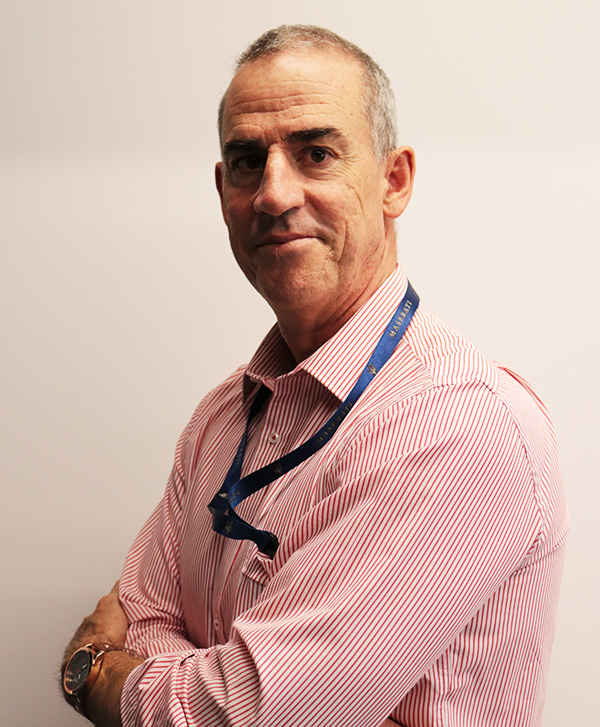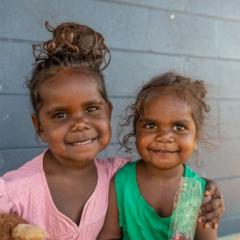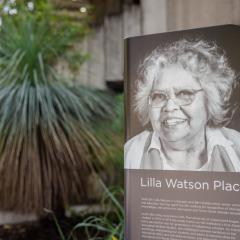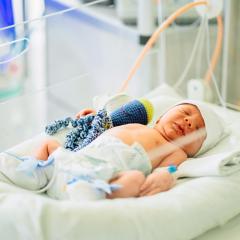Each month the Faculty of Health and Behavioural Sciences shines the spotlight on a UQ researcher.

This month they caught up with Dr Anthony Tuckett, Senior Lecturer here at the UQ School of Nursing, Midwifery and Social Work.
What are your key research interests?
Population ageing, older people and citizen science.
Can you share some of your career highlights so far?
Using citizen science with older people in the community to change their built environment – namely, footpaths, parklands, roadways and parking spaces. This then meant they could get outside and get better exercise through walking, and more engaged in physical activity. Together, we moved the local council to act! Collectively, we also improved food security for older people. Community-dwelling older people as citizen scientists who were accessing Burnie Brae’s Project Pantry Market Day were able to bring photographic images about their food market day to the attention of the administration who then in turn used these insights to make improvements to meet the older persons’ needs.
What aspects do you enjoy most about your work?
Getting involved with like-minded members of the public willing to act as amateur scientists to make changes in their world. Networking with, and working alongside, less experienced academics to see how best to get them started on the research publication outputs ‘highway’. Meeting new and interesting researchers and scholars from other universities and other parts of the world – in effect, being a part of the globalisation of nursing and the internationalisation of the curriculum.
Has your career taken you to any interesting, far-flung locations?
Indeed! I have been blessed to have set up student exchanges to Cambodia, with the University of Pennsylvania and the University of Virginia. I have been to the campuses of these latter two. I have variously had meetings or presented papers and given teaching sessions in the UK, China, Thailand, Korea, Japan, New Zealand and the United States. Perhaps a stand-out was twice visiting Papua New Guinea for the purpose of undertaking a number of scoping studies for the School, QBI, Peter Goodenough Trust and the LUPNG.
What inspired you to pursue a career in academia?
Honestly, it wasn’t planned. I was in the right place at the right time while undertaking my first nursing degree. The university where I undertook that study was in its infancy and I was undertaking Clinical Facilitation of their Undergraduate Nursing students. The university was in a growth phase, jobs were available for Associate Lecturers, so I secured one. It seemed like a good idea at the time.
What advice would you give to someone thinking about a research career?
Look for the good. Research is a constantly changing landscape and if one isn’t carful it can be quite a tough, mean-spirited, heart-breaking pursuit. So, seek out those who hold to the values you also prize and stay true to those values and those people. They do exist.
What was your first role after you graduated from university?
I am one of the very early post-registration nurses in Queensland who earned his first degree (Bachelor of Nursing) soon after his hospital training. I trained at the Princess Alexandra Hospital. So, I was working in tandem with my study. I am a very proud (old) Mater Children’s Hospital alumni, and during my study plus Clinical Facilitation I worked in Ward One (Orthopaedics), PICU and then the ED.
If you weren’t a researcher, what do you think you would be?
Hmmm? A bloody good clinician either looking after sick children or working with community-dwelling older people. Plus, a mad keen travel writer writing about walking, bike riding and rail adventures through even more far-flung locations.
What are your interests outside of work?
Staying fit; the rise and rise of population ageing and what it is going to mean for all of us; coffee; collecting watches and groovy socks; watching and listening to my adult children’s (an oxymoron) analysis of the core issues facing this planet we all share.
What do you enjoy most about living in Brisbane?
Big wide clean streets; fresh air; coffee and the Bayside.



